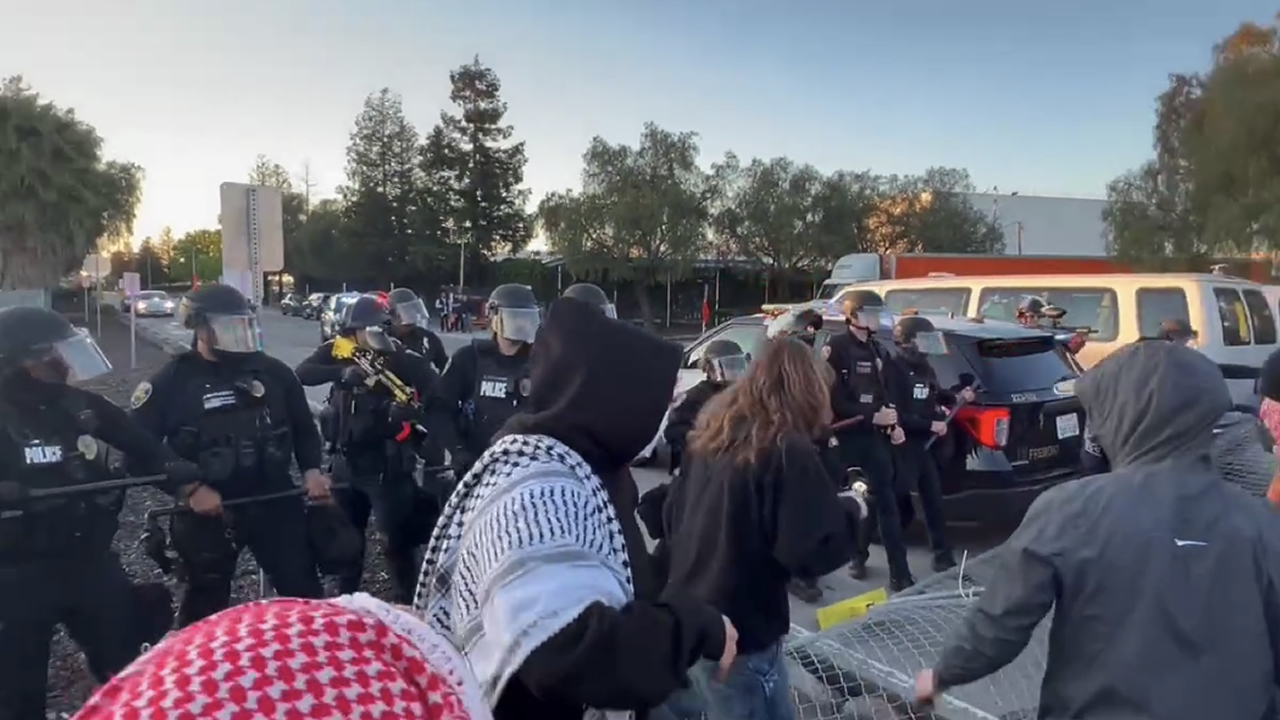'We will be cheating students': Silicon Valley trade school faces closure as COVID-19 brings financial struggle

SAN JOSE, Calif. (KGO) -- The Metropolitan Education District, or MetroED in San Jose is struggling financially because of COVID-19. The risk of closure is prompting education leaders to fight for another year.
Losses are already limiting programs, instructors and students for the upcoming school year.
"We won't be able to provide our cyber security program, and our medical assisting program," Superintendent Alyssa Lynch told ABC7 News. "We also have an automotive program, where what we did was we reduced the number of teachers so that we could save the program."
Because of the financial burden, the trade school known for training essential workers may not function beyond that.
RELATED: California unemployment questions? EDD expert answers questions on benefits, job opportunities
"We had 2,000 students that applied to get into our program, but the numbers that are preset by the districts have been reduced by about 110 because it's not affordable for them to continue to pay per student to attend our center," she explained.
Lynch continued, "We're looking at 100 in reduction this year, probably another 100 the following year, and we're not really sure what's going to happen by '21 - '22. Or '22 - '23, we actually don't expect to be here."
Superintendent Lynch has been advocating for ongoing direct funding for seven years.
"Back in 2013, the local control funding formula started this because centers like ours fell between the cracks," Lynch explained. "And we became dependent on our districts."
She said MetroED serves six local districts. These are districts that have had to reduce student enrollment because of the coronavirus pandemic.
"It's very difficult for school districts to continue to fund us," Lynch told ABC7 News. "So, we have to find other resources to keep our lights on until we can get Direct Funding from the state."
RELATED: 'Education: A Bay Area Conversation,' virtual town hall addressing COVID-19 impact on schools
On Wednesday, Lynch shared a letter from the president of MetroED's Governing Board, Linda Goytia.
Addressing City of San Jose and Santa Clara County leaders, Goytia requested they consider a combined $1 million investment, or $500,000 each.
"If you and your colleagues provide us with this support, it will ensure that we can keep our doors open for another year, and additionally, provide us with the necessary time to work with our legislative delegation for a long-term fiscal solution," the letter read.
At the bottom of the request, a desperate plea.
"I hope that you and your colleagues will consider supporting Metro-ED/SVCTE (Silicon Valley Career Technical Education) as without your help, we will not survive."
"Had I had this opportunity withheld from me when I was in high school, I don't know where I would be," former student and graduate, Kevin Tully told ABC7 News.
Tully graduated from MetroED's Fire Science program back in 2008, back when SVCTE operated as the Central County Occupational Center (CCOC).
"Though I was struggling in the traditional high school, I was the valedictorian of the first year of that firefighting class," Tully explained. "I went on to be the first intern in the San Jose Fire Department's Bureau of Field Operations, which got me connected to get a job at Foothill College as a proctor for the EMT program. I went to work at Apple, and I brought this huge career portfolio that I had built in the program that was kind of comical just looking back, being 18."
Now, Tully works at Stanford in IT, supporting research.
"What I left with, and what I think back to now is, I would not have had the same skills of developing a resume, preparing for an interview and thinking really critically about what a career path is," Tully said about MetroED.
"I went there thinking I was going to learn about Fire Science, and I came out having built a resume, having done mock interviews, having been able to think about questions that were not- these weren't college admission questions," he added. "I had to face questions like, 'What does diversity mean to you?' To prepare for a firefighting interview panel, and it made me think a lot about the community that I was going to serve and why I was deserving of that service. And what I had to do to get there."
"The population that we serve here," Superintendent Lynch continued. "I want to say 56 percent is the Hispanic population, 4 percent of the African American population. And we save kids. We send kids to college. We send them into the workforce."
She estimated more than 200,000 students within the community have graduated from MetroED programs.
"They either continue onto college or go right out to work," Lynch said.
RELATED: Coronavirus live updates: Sonoma County to allow wine tasting rooms, breweries to open Friday
MetroED provides programs in 24 areas, training electricians, mechanics, medical assistants and others. Industries considered to be essential during the same pandemic threatening to shut it down.
"We will be cheating students, and not providing opportunities to students that find their passion and go on to serve our community," Lynch told ABC7 News.
According to Lynch, MetroED has 125 business partners that call upon the district each year.
She added, "100 percent of our students are hired in the area of HVAC. Then dental assisting, we produce 100 students a year that are dental assistants in the offices locally."
Without funding assistance, Lynch anticipates great impact to the local economy.
"We're talking about 1,500 students a year," she said. "In two years, we're talking about 3,000 students that will not be going through a pipeline to local companies."
Regarding the request for assistance from city and county leaders, Tully added, "I understand that it has to be an incredibly difficult decision to be faced with choosing where our now so, so limited resources are going. But I would challenge them to consider if this is a cost saving measure, the cost to our city, to our county, to our state workforce, if we don't prepare this community for the workforce, is going to be so much more costly than the short term burden of funding MetroED."
"I had a lot of opportunity. I had a lot of support," Tully told ABC7 News. "And a lot of the classmates that I went to school with did not have that."
So he's challenging city and county leaders to think long and hard about whether there is another program that provides a comparable level of value to such an underserved community.
"It may be penny wise, but a pound foolish," he said. "And I would hope that they take that into consideration and speak with the students that went through these programs to see what it is that they'll be giving up."
ABC7 News has reached out to both the City of San Jose and County of Santa Clara, but did not hear back as of Wednesday night.













